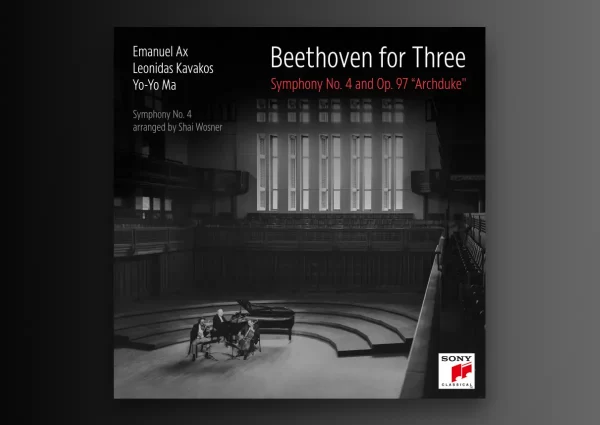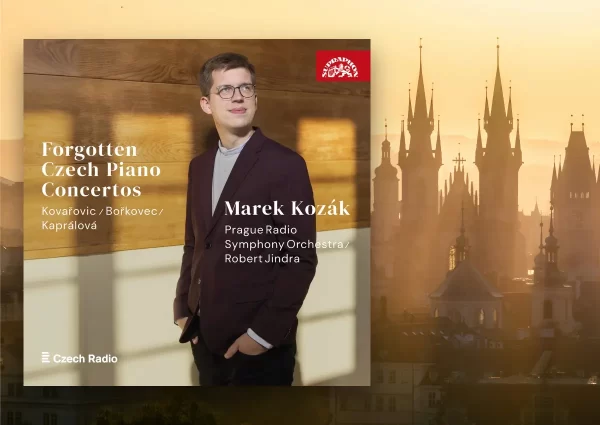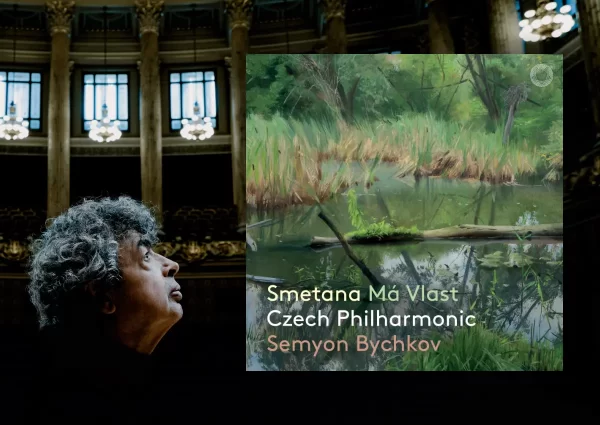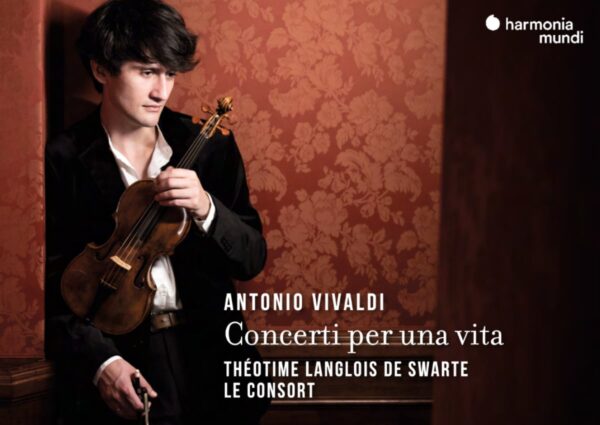After a recording hiatus of more than 20 years and signing a new exclusive contract with Sony, this long-awaited release finds Ivo Pogorelich performing Beethoven and Rachmaninov, the latter for the first time in the studio. Juxtaposing two idiosyncratic middle-period Beethoven Piano Sonatas alongside Rachmaninov’s second sonata is a curious choice of program. This often eccentric and controversial pianist will still divide opinion with these distinctive interpretations.
Pogorelich’s readings of the two Beethoven sonatas are very personal. The Op.54 sonata’s first movement indication is “In Tempo d’un Menuetto”, taken here rather stately, the dotted rhythm becomes almost double-dotted, changing the character of the music. The octave passages sound manic and overly loud, causing sforzandos and staccatos to become lost. Further dynamics are not fully released, and so contrasts between fortissimo and piano are missed. There are moments in which it is beautiful, very reminiscent of Pogorelich’s earlier recordings, but on occasions the overall texture becomes too grand, almost Brahmsian.
In the second movement, Beethoven indicates “Dolce”. Pogorelich brings excitement but loses the sweetness, especially in the final bars, creating an overall anxious experience. From the outset, there is a sense of arching within the individual phrases, however these are insufficiently consistent to develop a sense of the large-scale structure, so important to this music. The results are lacking in coherence or architectural unity. In comparison, Jean-Efflam Bavouzet’s reading of the same work is sincere, elegant and charismatic with a classical authority.
Pogorelich’s Op.78 takes more space than Paul Lewis’ more Schubertian approach. And so within this often wistful reading, one can also find a sense of poetry. It is short-lived, sadly, as the first movement loses its way, especially in all the observed repeats. The second movement captures much of the essence of “Allegro Vivace”, but being under tempo the characterful couplet phrasing is lost.
Long Tour de Force
Rachmaninov’s second sonata (op. 36) is a real tour de force, existing in two forms — the 1913 original and the cropped revision of 1931. A more rhapsodic piece than the Preludes and Études-Tableau, requiring an insightful pianist to make a convincing performance. Several commendable and highly distinctive renditions from piano royalty exist; Simon Trpčeski’s dramatic reading (rev. 1931), Vladimir Ashkenazy’s impassioned performance (1913), Boris Giltburg’s blunt bravura (rev. 1931) and Nikolai Lugansky’s (hybrid of original and revised) more lyrical approach. It’s a formidable undertaking to put another recording alongside these exponents of Rachmaninov.
Pogorelich’s 1931 version exceeds 29 minutes, making this recording one of the longest on record. The first movement, marked “Allegro Agitato”, starts with promise, but disappointingly becomes anything but. The dynamics occasionally peak prematurely as fortissimos are not always distinguishable from regular fortes. The rhapsodic nature of the work is missed as episodes sound homogeneous due to the overly relaxed tempo. Becoming tiresome towards the end of the movement, lacking momentum and losing direction, the transition into the second movement is diminished and lacking impact.
Most pianists play the second movement in approximately 7 minutes. Pogorelich takes over 10. Whilst there is much (but inconsistent) beauty of tone, the performance meanders further. The complex textures of Rachmaninov’s music become layers of sound, merging like watercolors of a painting, diluting the emotional intensity into a haze of undistinguishable color. The final movement (“Allegro Molto”) is not fully realized, elongating the phrases unnecessarily. Dynamics lack further contrast and whilst there is a sense of climax towards the end, its effectiveness is reduced by the overall lack of momentum. Throughout, there are glimpses of greatness, but this performance is left deep in the shadows of other formidable Rachmaninov interpreters.
Pogorelich’s sound has matured in the intervening years into something overly considered and less distinctive. He brings a different sound to the Beethoven — radical, brittle, individual, romantically spirited. The tempo choices of the Rachmaninov makes this expansive rendition incredibly self-indulgent. The too close for comfort recording comes across harshly at the loud extremes of the instrument. The superfluous noise of the piano’s dampers and the frequency of Pogorelich’s breathing is distractingly obvious. Whilst this is less problematic in the Rachmaninov (recorded two years after the Beethoven), these are still noticeable. The two Beethoven Sonatas were recorded independently as exclusive tracks for streaming services and appear here under Sony Classical. The recording quality is certainly not the standard excellence one expects from this label.

Beethoven – Piano Sonatas No. 22, Op. 54, No. 24 (“Therese”), Op. 78
Rachmaninov – Piano Sonata No. 2, Op. 36
Ivo Pogorelich – Piano
Sony Classical, CD 19075956602
Albums Mentioned In This Review:
Follow Us and Comment:
Get our periodic classical music newsletter with our recent reviews, news and beginners guides.
We respect your privacy.








